PROPYL FORMATE
Synonym(s):n-Propyl methanoate
- CAS NO.:110-74-7
- Empirical Formula: C4H8O2
- Molecular Weight: 88.11
- MDL number: MFCD00003295
- EINECS: 203-798-0
- SAFETY DATA SHEET (SDS)
- Update Date: 2023-11-28 16:31:44

What is PROPYL FORMATE?
Chemical properties
CLEAR COLORLESS LIQUID
Chemical properties
Propyl formate has a characteristic fruity (rum–plum) odor and a corresponding bittersweet flavor.
Occurrence
Reported found in plum, brandy, apple, black currant, and pineapple.
The Uses of PROPYL FORMATE
Propyl formate was used in the synthesis of the radicals - CH3CH2CHOCHO, CH3CHCH2OCHO, and CH2CH2CH2OCHO by TiCl3.H2O2 radical-generating method.
The Uses of PROPYL FORMATE
Flavoring.
Preparation
By action of sulfuric acid on a mixture of propyl alcohol, formic acid and sodium formate; also by distilling propyl alcohol with anhydrous formic acid in the presence of sodium formate.
Definition
ChEBI: Propyl formate is a carboxylic ester.
Taste threshold values
Taste characteristics at 50 ppm: fruity, green and ethereal with a berry lift.
General Description
A clear colorless liquid with a pleasant odor. Flash point 27°F. Slightly soluble in water and less dense than water. Hence floats on water. Vapors are heavier than air.
Air & Water Reactions
Highly flammable. Slightly soluble in water.
Reactivity Profile
PROPYL FORMATES are esters. React with acids to liberate heat along with propanols and formic acid. Strong oxidizing acids may cause a reaction that is sufficiently exothermic to ignite the reaction products. Heat is also generated by interaction with caustic solutions. Flammable hydrogen is generated by mixing with alkali metals and hydrides.
Hazard
Flammable, dangerous fire risk.
Health Hazard
May cause toxic effects if inhaled or absorbed through skin. Inhalation or contact with material may irritate or burn skin and eyes. Fire will produce irritating, corrosive and/or toxic gases. Vapors may cause dizziness or suffocation. Runoff from fire control or dilution water may cause pollution.
Fire Hazard
HIGHLY FLAMMABLE: Will be easily ignited by heat, sparks or flames. Vapors may form explosive mixtures with air. Vapors may travel to source of ignition and flash back. Most vapors are heavier than air. They will spread along ground and collect in low or confined areas (sewers, basements, tanks). Vapor explosion hazard indoors, outdoors or in sewers. Runoff to sewer may create fire or explosion hazard. Containers may explode when heated. Many liquids are lighter than water.
Safety Profile
Moderately toxic by ingestion. An irritant to skin, eyes, and mucous membranes. Narcotic in high concentration. Dangerous fire hazard when exposed to heat, flame, or oxidizers. Ignites on contact with potassium-tert-butoxide. Explosive in the form of vapor when exposed to heat or flame. To fight fire, use alcohol foam. When heated to decomposition it emits acrid smoke and irritating fumes. See also ESTERS.
Purification Methods
Distil the formate, then wash it with saturated aqueous NaCl, and with saturated aqueous NaHCO3 in the presence of solid NaCl, dry it with MgSO4 and fractionally distil it. [Beilstein 2 IV 26.]
Properties of PROPYL FORMATE
| Melting point: | -93 °C (lit.) |
| Boiling point: | 80-81 °C (lit.) |
| Density | 0.904 g/mL at 25 °C (lit.) |
| vapor density | 3.03 (vs air) |
| vapor pressure | 100 mm Hg ( 29.5 °C) |
| refractive index | n |
| FEMA | 2943 | PROPYL FORMATE |
| Flash point: | 25 °F |
| storage temp. | Flammables area |
| solubility | water: soluble45 part(lit.) |
| form | clear liquid |
| color | Colorless to Almost colorless |
| Odor | at 10.00 % in dipropylene glycol. sweet ethereal green rum fruity berry |
| Odor Threshold | 0.96ppm |
| explosive limit | 2.4-7.8%(V) |
| Water Solubility | 22g/L(22 ºC) |
| Merck | 14,7858 |
| JECFA Number | 117 |
| BRN | 1739272 |
| Dielectric constant | 7.7(19℃) |
| CAS DataBase Reference | 110-74-7(CAS DataBase Reference) |
| EPA Substance Registry System | Formic acid, propyl ester (110-74-7) |
Safety information for PROPYL FORMATE
| Signal word | Danger |
| Pictogram(s) |
 Flame Flammables GHS02  Exclamation Mark Irritant GHS07 |
| GHS Hazard Statements |
H225:Flammable liquids H319:Serious eye damage/eye irritation H335:Specific target organ toxicity, single exposure;Respiratory tract irritation H336:Specific target organ toxicity,single exposure; Narcotic effects |
| Precautionary Statement Codes |
P210:Keep away from heat/sparks/open flames/hot surfaces. — No smoking. P233:Keep container tightly closed. P240:Ground/bond container and receiving equipment. P241:Use explosion-proof electrical/ventilating/lighting/…/equipment. P242:Use only non-sparking tools. P305+P351+P338:IF IN EYES: Rinse cautiously with water for several minutes. Remove contact lenses, if present and easy to do. Continuerinsing. |
Computed Descriptors for PROPYL FORMATE
New Products
4-AMINO-TETRAHYDRO-PYRAN-4-CARBOXYLIC ACID HCL 4-(Dimethylamino)tetrahydro-2H-pyran-4-carbonitrile 4-AMINO-TETRAHYDRO-PYRAN-4-CARBOXYLIC ACID 4-Aminotetrahydropyran-4-carbonitrile Hydrochloride (R)-3-Aminobutanenitrile Hydrochloride 5-Bromo-2-nitropyridine Nimesulide BP Aceclofenac IP/BP/EP Diclofenac Sodium IP/BP/EP/USP Mefenamic Acid IP/BP/EP/USP Ornidazole IP Diclofenac Potassium 3-Bromopyrazole (3aR,4R,5R,6aS)-hexahydro-5-Triethyl silyloxy-4-((E)-3-oxo-5-phenylpent-1- enyl)cyclopenta[b]furan-2-one. 1-Chlorocarbonyl-4-piperidinopiperidine 1-Bromo-4-phenyl-2-Butanone 4-Amino-2-fluoro-N-methylbenzamide 1,1'-Carbonyldiimidazole SODIUM AAS SOLUTION ZINC AAS SOLUTION BUFFER SOLUTION PH 10.0(BORATE) GOOCH CRUCIBLE SINTERED AQUANIL 5 BERYLLIUM AAS SOLUTIONRelated products of tetrahydrofuran
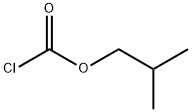


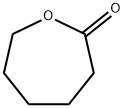
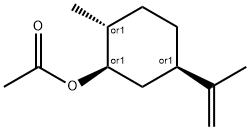

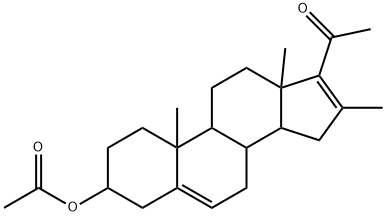
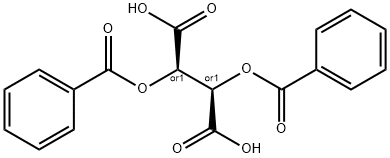
You may like
-
 Propyl Formate CAS 110-74-7View Details
Propyl Formate CAS 110-74-7View Details
110-74-7 -
 n-Propyl formate CAS 110-74-7View Details
n-Propyl formate CAS 110-74-7View Details
110-74-7 -
 Propyl formate CAS 110-74-7View Details
Propyl formate CAS 110-74-7View Details
110-74-7 -
![Dimethyl [2-oxo-3-[3-(trifluoromethyl)phenoxy]propyl]phosphonate 99%](https://img.chemicalbook.in//Content/image/CP5.jpg) Dimethyl [2-oxo-3-[3-(trifluoromethyl)phenoxy]propyl]phosphonate 99%View Details
Dimethyl [2-oxo-3-[3-(trifluoromethyl)phenoxy]propyl]phosphonate 99%View Details
54094-19-8 -
 85-81-4 99%View Details
85-81-4 99%View Details
85-81-4 -
![208111-98-2 (3aR,4R,5R,6aS)-5-(Benzoyloxy)hexahydro-4-[(1E)-3-oxo-4-[3-(trifluoromethyl)phenoxy]-1-buten- 1-yl]-2H-cyclopenta[b]furan-2-one 99%](https://img.chemicalbook.in//Content/image/CP5.jpg) 208111-98-2 (3aR,4R,5R,6aS)-5-(Benzoyloxy)hexahydro-4-[(1E)-3-oxo-4-[3-(trifluoromethyl)phenoxy]-1-buten- 1-yl]-2H-cyclopenta[b]furan-2-one 99%View Details
208111-98-2 (3aR,4R,5R,6aS)-5-(Benzoyloxy)hexahydro-4-[(1E)-3-oxo-4-[3-(trifluoromethyl)phenoxy]-1-buten- 1-yl]-2H-cyclopenta[b]furan-2-one 99%View Details
208111-98-2 -
 2033-24-1 99%View Details
2033-24-1 99%View Details
2033-24-1 -
 Meldrums acid 2033-24-1 99%View Details
Meldrums acid 2033-24-1 99%View Details
2033-24-1